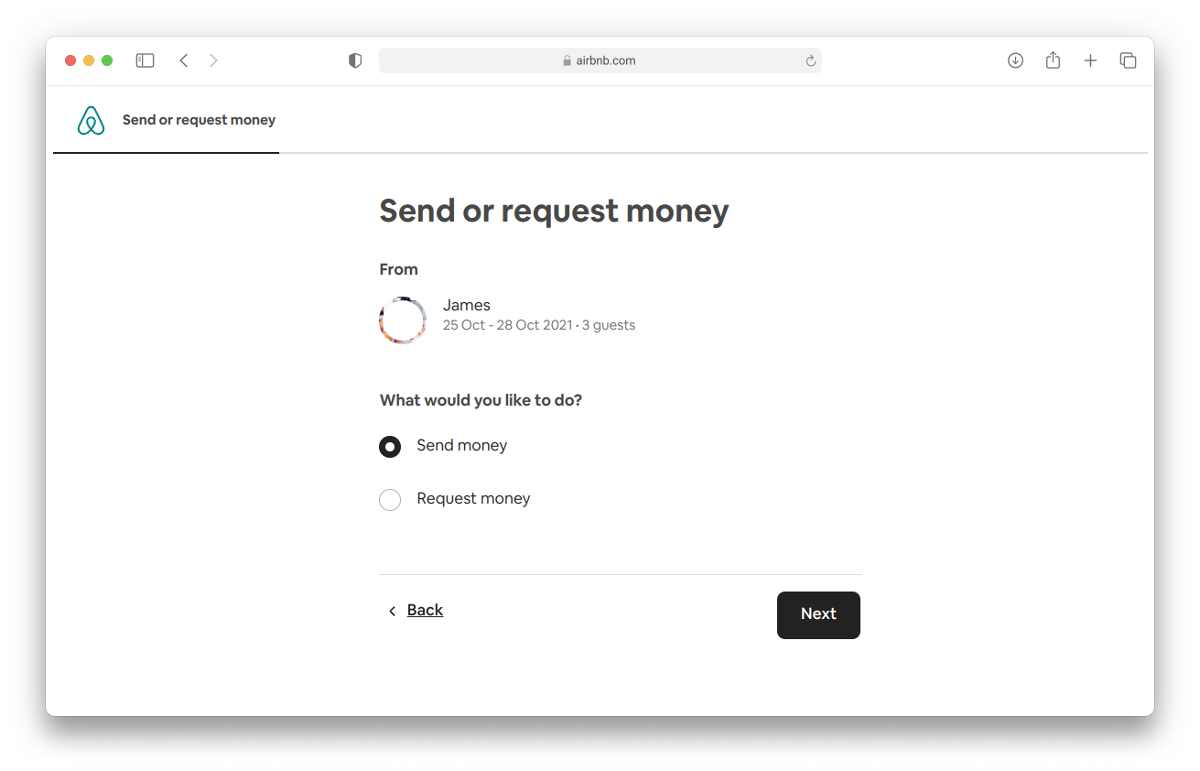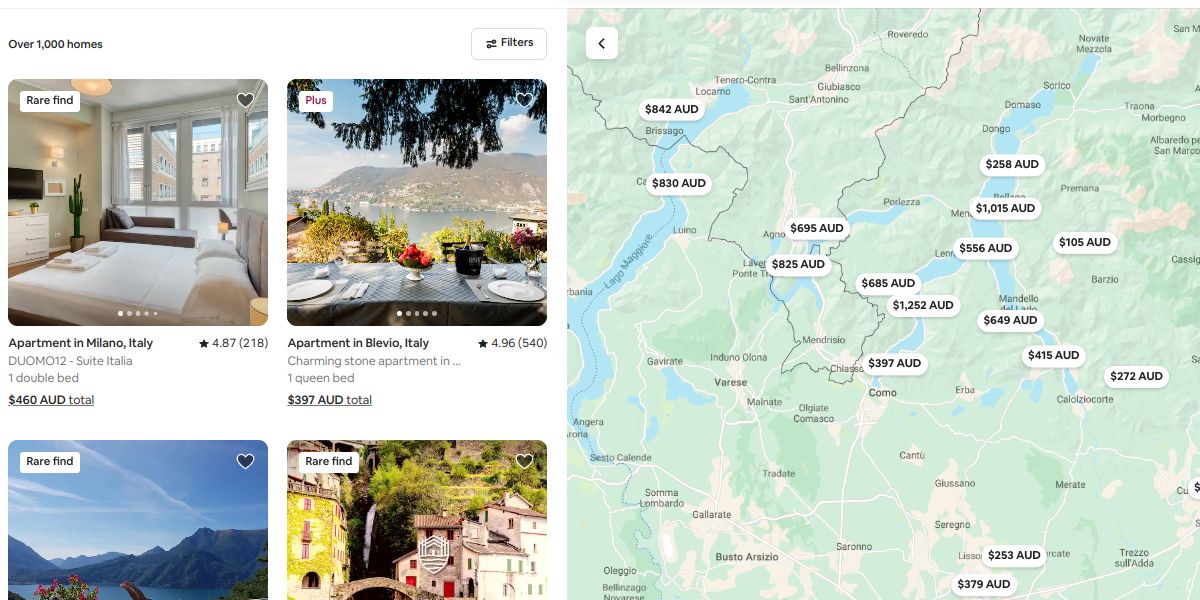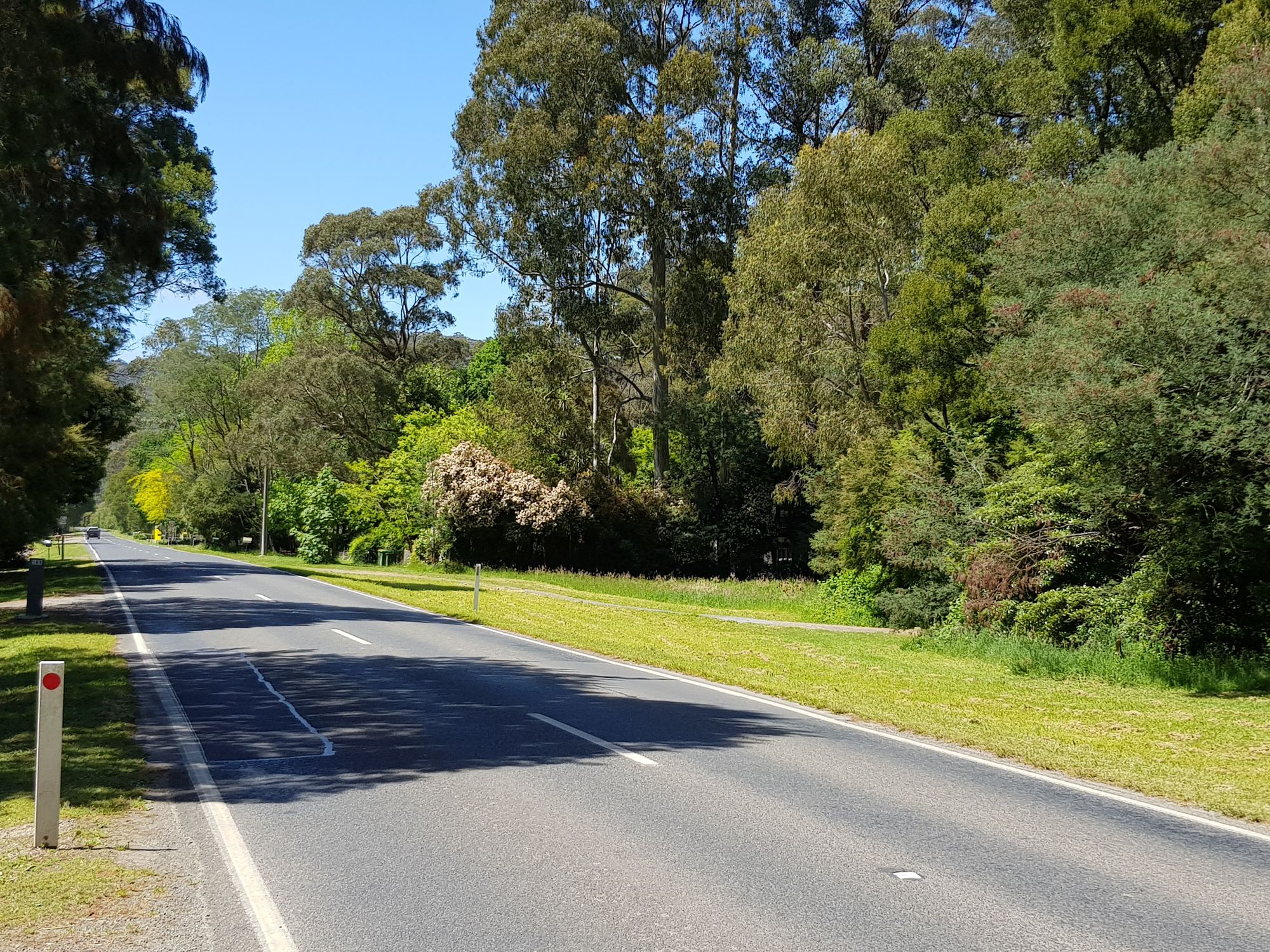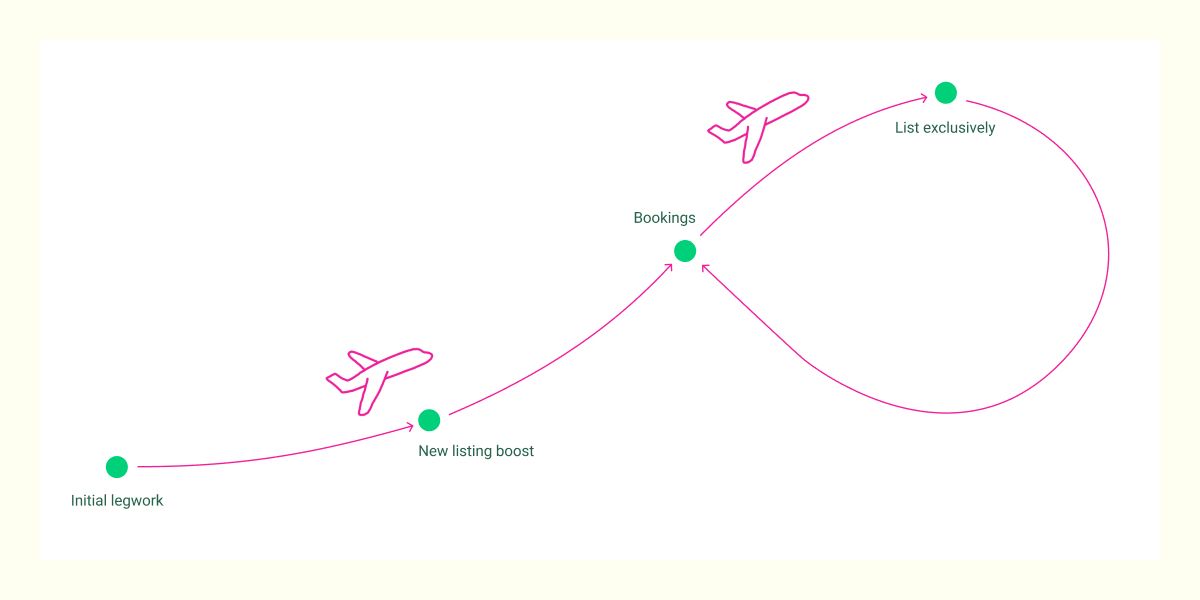Airbnb SEO strategy from a search engineer

Strap yourself in.
You’re about to learn search engine optimisation (SEO) from a superhost with search engineering background.
I am a software engineer by trade. A few years ago I worked for a large marketplace with millions of transactable items.
It was not too dissimilar to Airbnb. I was placed in the Search team.
I programmed search algorithms, literally.
Using my knowledge of search engines, I've been able to boost my listing into position #1 for its location.
This article will give you the right strategic understanding of what it takes to rank high in Airbnb search results.
I won't teach you programming, as it won't benefit you as a host.
A few words about marketplaces
In the business world, Airbnb is considered a two-sided marketplace. It means that Airbnb is an intermediary (marketplace) that facilitates transactions between two sides: hosts (supply) and guests (demand).
The word 'marketplace' that I used in the opening section about my background was actually significant.
My search engineering experience is in the same specific business category as Airbnb i.e. two-sided marketplace. (No, that company wasn't a short-term rental platform.)
This experience is crucial. It allows me to reason from first principles and put all my effort into what really matters.
First principles thinking
First principles thinking means boiling a problem down into its most basic form. By putting aside distracting trivial facts, the most effective solution will reveal itself.
Imagine you have an onion. Your problem - ranking high in Airbnb search results - is the outer layer. You need to keep peeling until you see the core, where you reach that bit of knowledge that really matters to your ranking.

"SEO tips", "SEO hacks", "Airbnb ranking factors" - they're all middle layers of the ranking onion.
What do you think the core is? The algorithm itself? The engineers who build it? No.
The onion core lies in what Airbnb is and its commercial context.
This commercial context influences the engineers who build Airbnb's search algorithm. Once you understand this, you understand the strategy for Airbnb SEO.
The commercial context that underpins everything
So here's the onion core, how we think from a first principle:
Airbnb is a publicly listed business. It exists to make money. (Nothing wrong with this.)
Therefore, it stands to reason that its employees will (consciously or not) design Airbnb’s search algorithm to favour things that make money for Airbnb.
The algorithm of any marketplace is always geared towards facilitating more and more transactions, thereby making more and more money for the business.
Product managers and software engineers continually tweak their search algorithm toward this outcome. Knowingly or unknowingly. Directly or indirectly.
Help Airbnb make more money, and your listing will go up in ranking. Simple as that.
It may sound crass but it's how search algorithms work in all marketplace businesses.
Through first principles thinking, I can see that other online resources discuss the wrong SEO game. They only see the middle onion layers.
My SEO strategy is unconventional compared to the crowd, because I work from the onion core.
The search algorithm
Now I will explain how search algorithms work in plain English.
Engineers use what they call quality signals to determine how much an item deserves to be boosted in ranking.
A decent search algorithm doesn't actually need much. A dozen quality signals will do. This is probably a lot less than what you expected, right?
Now, it's likely that Airbnb considers more than a dozen signals. How many?
I don't know. It doesn't matter.
Search algorithms follow a concept called Power Law. It means that the first couple of quality signals significantly outweigh the rest.

In other words, some quality signals weigh so much more than others, making them dominant.
For my Airbnb SEO strategy, I only focus on 2 dominant quality signals. I ignore the rest to save time.
Cancellations
A host who doesn’t cancel on guests is a dominant quality signal.
Airbnb really hates host-initiated cancellations.
The reason is obvious. A cancelled booking really infuriates guests. It throws their carefully planned itinerary into disarray. Not to mention the high cost of finding a last-minute alternative.
It's not uncommon for guests who experienced this to never return to Airbnb. Permanently.
Remember the commercial context that I laid out earlier? It is super relevant here.
Now let's break down what happens when a host cancels a booking, from Airbnb's commercial lens.
First, Airbnb is deprived of the immediate booking fee. Second, Airbnb may have to compensate the guest for their trouble. Finally, Airbnb risks missing out on future bookings from the guest, permanently.
Can you see how cancellations are really terrible for Airbnb as a marketplace? Each time a host cancels a booking, Airbnb loses out commercially in three different ways.
Can you also see that this algorithm, which has been programmed to favour money-making outcomes, has no choice but to send a host-cancelling listing down the ranking order?
That's why for me, cancelling on guests is an absolute no-no.
I avoid it like the plague.
The most obvious evidence of Airbnb's dislike for host-initiated cancellations is the ever increasing penalty that it inflicts upon hosts. It is now up to $1,000 USD per offence.
I would be extremely surprised if Airbnb's search algorithm wasn't programmed to dish out a similarly severe punishment ranking-wise.
What do you do if a guest wants to cancel their stay?
If a guest wants to cancel their stay, under no circumstances should you do it on their behalf.
Get them do it from their end. Whatever it takes.
You can always provide a full refund after the fact if your guest is worried about losing their money. There’s an in-built Airbnb feature for this.

There's also Airbnb Support. If your guest doesn't know how to cancel their own booking, you can call Airbnb support on their behalf.
Explain that the guest wants to cancel but doesn't know how. Make sure to emphasise that it's a guest-requested cancellation and confirm that your listing won't be penalised.
Bookings
Another dominant quality signal is the number of recent bookings.
If you don't come from a programming background, you probably think that search algorithms are insanely smart. The truth is, they're not really.
At the end of the day, search algorithms rely on human input to determine quality. Without human input, they can't judge quality.
Someone viewing your listing is a human input. Someone leaving you a review is another. The algorithm collects such signals for ranking.
The most powerful quality signal by far is bookings. Why? Because it's a human input that requires the most sacrifice and commitment from the human.
For engineers of any kind of marketplace, nothing screams quality louder than hundreds of dollars being spent on a thing.
In the case of Airbnb, if your accommodation gets bookings, it’s going up in ranking. It doesn’t matter if you have 0 reviews or terrible photos.

That said, you should still give your property the best chance possible. It’d be foolish not to polish your listing.
So go ahead, apply these 10 conversion tips:
- Appealing title
- High-quality photos
- Great reviews
- Instant booking
- Airbnb exclusivity
- Attractive pricing
- Permissive cancellation policy
- Friendly fees
- Response rate
- Added to Wishlists
Some bloggers publish a similar list and label it “SEO tips” or “SEO ranking factors”. I'm not a huge fan of that naming.
Yes, some of them do indeed influence SEO, but the SEO impact of the individual tips by themselves is relatively minor. It’s the bookings that they lead to that matter. I cannot stress this enough.
Put it this way: the 10 conversion tips influence guests, bookings influence the algorithm.
Reviews
This may come as a surprise, but I ignore reviews as a quality signal.
If you expect Airbnb's search algorithm to account for reviews, you would be right. In fact, the algorithm is likely to assign reviews a fairly significant weight (but not making it a dominant signal).
After all, reviews are essentially an accurate human input on quality.
Thinking about reviews as an SEO quality signal is an unnecessary distraction.
Reviews are a by-product of bookings. If you know how to get more bookings and host well, you're certain to get good reviews anyway.
I don't want reviews to confuse the matter, so I choose to keep my SEO strategy simple: do my off-platform work (see below), provide awesome accommodation, and get my bookings.
New listing boost
You may be wondering "What happens when a brand new listing is submitted to Airbnb?"
The search algorithm has no data for the listing to work with. Does it mean new listings have to start from the bottom of search results?
You can easily see the risk of a vicious cycle forming in this scenario: a new listing is submitted →zero data →bottom place in search result →listing gets no booking→data remains zero→forever condemned to bottom place.
Is this what's happening?
Fortunately, this is not the case.
Giving new listings a temporary boost for the first few weeks or months after submission is a pretty common technique employed by search engineers.
When the algorithm doesn't know how good a new listing is, it has to find out somehow. The best way to find out is to show it to humans to judge.
During the initial "honeymoon" period, a new listing pops up high in search results at random times. This is how human input gets collected.
A good listing will naturally get click-throughs, bookings, and reviews. This gives the algorithm data to work with in the future.
A poor listing, on the other hand, will accumulate a lot less data, leading to long-term placement at the bottom once the honeymoon period is over.
Earlier I mentioned that a new listing gets boosted at random times over the honeymoon period. It doesn't get boosted for every single search, only some of them.
I also mentioned that the honeymoon period lasts somewhere between a few weeks to a few months.
The two parameters - how frequently a new listing gets boosted, and how long a honeymoon is - depend on how smart the algorithm is. A sophisticated algorithm adjusts the parameters dynamically.
For instance, we can't say with certainty that the boost will last for a fixed amount of time. A smart algorithm varies it depending on how many other new listings are being submitted, and the number of old listings in existence.
It's not about quick hacks. It's about off-platform work.
I don’t want you to treat the 10 conversion tips that I listed above as a checklist to be ticked off quickly.
SEO doesn’t work that way. It’d be too good to be true.
It also contradicts with the first principle thinking that I discussed at the start.
Besides, there are nuances that you have to consider. Blindly pulling all conversion levers to the max can backfire.
I made this very mistake myself. When I first began, I set my B&B price too low, resulting in bookings from incompatible demographics.
My first guest was a uni student who wanted to impress his girlfriend. My spacious, tranquil cottage in a cute rural town was too boring for them.
Disappointed, he gave me a poor review.
I responded to this incident by increasing my price. Since then I’ve gotten a perfect 5-star rating almost every time.
How come?
As it turns out, the higher nightly rate prices out uni students.
The increased price point shifted my Airbnb into different demographics.
It is now booked by professionals and parents who, nine times out of ten, are pretty tired people. The serenity, crisp air, trees - these recuperate them. My accommodation is a perfect place for them to recharge, and they happily pay for it.
The feature-rich Airbnb platform had initially given me the impression that it’s a set-and-forget business. Configure my listing, then sit back and relax.
The apparent ease of the platform lulled me into a lazy mindset.
My first guest woke me up. I am eternally grateful to him.
He made me realise that a successful Airbnb requires much more than just completing forms and fields on the Airbnb platform.
He showed me the need for what I call off-platform work. Understand my demographics, magnify my location's strengths, adjust pricing, etc.
All of this work directly and indirectly got me more bookings.
I noticed that my search ranking improved as I spent more time on such work.
Airbnb SEO Rules
Airbnb success doesn't happen overnight. I tested many different ideas. Whatever I do, I always stick to these two SEO rules:
- Be good to guests
- Be good to Airbnb
Rule #2 may come across as corporate fandom. It's not. It's based on logical deduction that as a commercial entity, Airbnb is always going to reward listings that are good for its business.
My SEO rules act as a guardrail. It stops me from accidentally doing things that the algorithm will punish.
Here’s a relevant case study from my early Airbnb days.
Around the one year mark my B&B income was decent, but nowhere near full occupancy.
So I looked for ways to increase my bookings.
One obvious idea was to cast the net wider. Cross-list on Airbnb’s competitors. Get more eyeballs.
My engineering experience kicked in. “Don’t do this. It’s a bad idea.”
Cross-listing on competitor platforms would be bad for Airbnb, violating my SEO rule #2. So I quickly ditched the plan.
Yes, sticking with Airbnb exclusively got me fewer bookings at the time, but I knew that it would pay off in the long run. (It did massively, by the way.)
(You may want to read Why is Airbnb exclusivity better?)
I turned to Airbnb messaging to understand my guests better.
One guest revealed that she was attending a wedding at a nearby venue (that I hadn’t been aware of).
This caught my attention. Many weddings are held in spring, which is usually my low season. This could be ideal for filling stubborn gaps in my yearly calendar.

I looked up the wedding venue on Google Maps. It’s within short walking distance from my property. Things couldn’t have been more perfect!
So I sprung into action.
I added a few decorations and amenities to enhance romantic and happy vibes in my property (SEO rule #1). Then I replaced some of my listing photos, showing off the new more romantic look. I also updated the description to mention the wedding venue.
In short, I made the property appealing to wedding people.
Sure enough, I started getting wedding-related bookings. Not many. But enough to move my position in search results.
Every spring my listing naturally gets more bookings than my competitors. Airbnb’s algorithm picks up this elevated booking rate, so it rewards my listing with a higher position.
Airbnb SEO strategy
Knowledge of how search algorithms work is great and all, but how do you put it in practice? What is the SEO strategy here, in concrete terms?
With what I know now, if I was to start all over again, I would create a self-sustaining virtuous cycle this way:
Do initial off-platform legwork - Which consists of:
- Conduct demographics mapping
- Select healthy target segments
- Pick the right price point
- Devise strategies to defend against competitors
- Pick a location that offers natural abilities to attract guests
- Provide home design and amenities that are fairly unique (nothing can be truly unique anymore these days)
- Put in place mechanisms for off-platform booking acquisitions e.g. partnering with local businesses, social media, etc.
Rely on new listing boost for early visibility - This temporary SEO boost should give my listing enough visibility to acquire some on-platform bookings initially.
Watch my listing steadily climb up in ranking - As my listing gets booked, the bookings metric goes up, indicating to the algorithm that the listing is high-quality.
Concentrate all "SEO goodness" on one platform - By hosting exclusively on a single platform (Airbnb), my listing gathers strong statistics thereby solidifying its upward ranking trajectory.

I break down the above stages into detailed steps in How to get more bookings on Airbnb and How to become an Airbnb host with healthy profit.
Airbnb SEO vs Google SEO
According to Google SEO experts, there's only one SEO rule to adhere to, which is: provide unique, high-quality content.
Google SEO boils down to simply producing content that is genuinely good.
Sure, quick and dirty hacks may work in the short term, but given a long enough time horizon, well-made websites with actually good content will prevail.
You may have noticed that my two Airbnb SEO rules sound awfully similar to the Google SEO rule.
That's because the two rules came about for the same exact reason: produce something that is genuinely good. In the long run providing great accommodation is the only sure way to climb up in ranking.
Final words
Airbnb SEO is not about quick and dirty hacks. It requires strategy. It requires work.
Above all, it requires being good to guests, and being good to Airbnb.